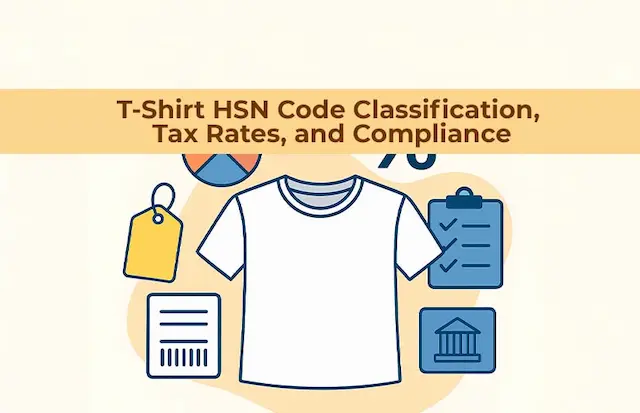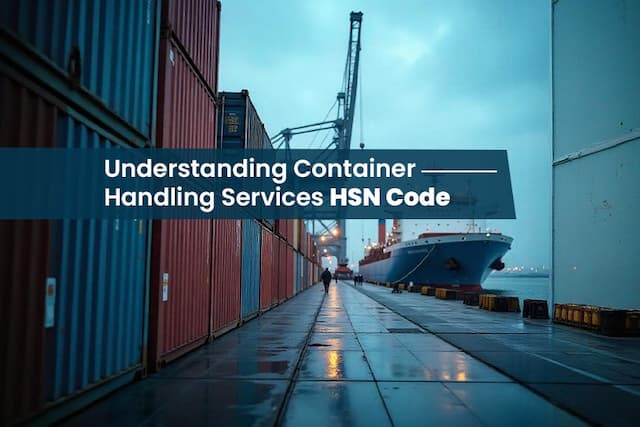Product classification is not about paperwork for a business that deals with the trade of fuel, logistics, or compliance documents; it is a key process of being operational and legal. Although presently there is no tax on petrol under GST, classification under the Harmonised System of Nomenclature (HSN) is essential. The HSN code for petrol is needed on documentation concerning customs, excise, and tax, making it a non-negotiable item in the trade of petroleum.
This blog will look at the significance of HSN codes, the existing classification of petrol, and what each trader must know to be compliant today and prepared for the future.
The Role of HSN Codes in India’s Trade Framework
India is going with the international HS system of goods classification (taxation and trade). The HSN codes are numerical codes that are utilised to achieve consistency in the classification of goods across the states. Although petrol is exempt from GST, it still needs to be classified adequately through HSN codes for import and export, warehousing, customs duties, and invoicing.
In the case of fuel traders, the petrol HSN code serves as a checkpoint when generating documents to be used by the regulators, transporters, and port authorities.
HSN Code for Petrol and Its Classification
Petrol belongs to Chapter 27 of the HSN list that includes mineral fuels, mineral oils, and their distillation products. Petrol falls in the HSN 2710, which refers to the motor spirit or gasoline. This classification is considered to be critical as it directly associates the product with excise liabilities, customs codes, and transport documentation.
This code is also utilized when composing invoices, filing excise records, and maintaining electronic transport records within states in India, even without GST.
Customs and Excise Use of HSN Code for Petrol
Customs clearance must be documented according to HSN codes when importing or exporting petroleum products. The code assists the customs officers in determining the specific product that is being traded, the duties that customs law would impose, and in clearing the goods, based on the classification precision.
Even domestic fuel movement within the country, between refineries to depots, or between depots and retailers, is normally subject to excise documents, which involve the use of the HSN code of petrol. Getting this wrong will lead to penalties or the declination of goods-in-transit documents.
E-Way Bills and Petrol Movement
When transporting Petrol interstate, an e-way bill needs to be prepared, but in certain states, it is exempted since it is tax-free under GST. However, in cases of businesses that continue working in terms of two systems of compliance, central excise and state tax, the availability of the HSN code in the documents is essential.
Application of the appropriate HSN code to petrol means all the e-way bills, transport forms, and tax returns are aligned, particularly during the process of inspection of shipments by state VAT authorities.
Invoicing for Petrol Sales and Distribution
HSN codes are provided on the invoice of fuel distributors, resellers, and even in oil marketing companies, so as to ensure accounting clarity. Even though GST is not charged for petrol, the invoices still need to be in a structured format as required under GST. It includes fuels of HSN codes, tax details (though no tax may be charged), pricing details, etc.
Proper billing of petrol with HSN code is also useful in the internal auditing process, stock reconciliation, and observing accounting standards that many companies use voluntarily.
Differentiating Between Fuels Using HSN Codes
In chapter 27, a number of fuel classifications are present. An HSN code will be provided to each petroleum product, which includes diesel, naphtha, furnace oil, and aviation fuel. For example, diesel, which will be under 27101930, while aviation turbine fuel has another code altogether.
Misreporting the petrol code (entered accidentally or not) may either instigate customs and excise delays, wrong calculation of duties, or even misreporting in excise returns. The distinction that the HSN code on petrol will give is the one that differentiates it from products that have close relations.
HSN Code and GST Rate Table for Petroleum Products
| Product Description | HSN Code | GST Rate |
| Crude Petroleum (Crude Oil) | 2709 | 0% |
| Motor Spirit (Petrol) | 2710 | 0% |
| High-Speed Diesel (HSD) | 2710 | 0% |
| Natural Gas | 2711 | 0% |
| Aviation Turbine Fuel (ATF) | 2710 | 0% |
| Kerosene Oil (PDS) | 2710 | 5% |
| Liquefied Petroleum Gas (LPG) – Domestic supply | 2711 | 5% |
| LPG for commercial/industrial use | 2711 | 18% |
| Furnace Oil | 2710 | 18% |
| Lubricating Oils, Greases | 2710 | 18% |
| Petroleum Jelly | 2712 | 18% |
| Bitumen | 2713 | 18% |
| Paraffin Wax | 2712 | 18% |
How Petrol May Eventually Come Under GST
Industry stakeholders are increasingly demanding inclusion of fuels into the GST to eliminate double taxation and enhance logistics efficiency, and facilitate the process of unifying fuel prices within the states.
Companies that already include petrol in the HSN code will find it simple to perform the transition, change billing formats, and file GST when necessary. The HSN code of petrol will become central to rate assignment, ITC (Input Tax Credit) calculation, and filing under the GST returns.
Verifying the HSN Code for Compliance Accuracy
The HSN codes of products supplied by traders and tax professionals can be verified at the official GST portal or in the customs tariff, or in documents. It would be a wise move to always cross-check with the Central Board of Indirect Taxes and Customs (CBIC) that you are applying the correct version.
In big organisations and fuel retail companies, an error in HSN code, even in in-house systems, may result in inconsistency in reporting both in terms of taxes and stock count.
Classification First, Taxation Later
In the trade landscape, the right classification makes a huge difference. The HSN code of petrol is crucial in regulatory verification, document handling during transport, customs clearance, and preparations for the future, even when GST is not in use. As a trader, transporter, or fuel distributor, the correct use of an HSN code ensures that your supply chain works effectively and your books are ready to be audited.




